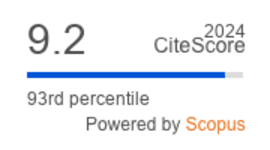Comprehensive Analysis of microRNA Methylation Profiles and Determination of Their Functional Significance in Colorectal Cancer: A Study Protocol
DOI:
https://doi.org/10.36877/pmmb.a0000389Abstract
Colorectal cancer (CRC) is a leading cause of cancer-associated fatalities globally. Despite the notable progress in diagnostics and patient care, challenges persist in areas such as early detection, prognostic variable identification, metastatic disease treatment, and personalised treatment options. In CRC, microRNAs, a type of short non-coding RNA, are found to be deregulated and can significantly influence its onset and progression. However, previous microRNA research primarily focused on expression levels to ascertain their biological significance, leaving the microRNA methylation landscapes in CRC patients largely unexplored. This study aims to investigate the genome-wide methylome profiles of microRNA and clarify their roles in CRC. We will analyse the microRNA methylation profiles from our in-house data of more than 100 CRCs and correlate the differentially methylated microRNAs with clinicopathological features. To understand the biological significance of methylated microRNAs, we will perform pathway enrichment analysis and molecular dynamics simulations to examine the binding of argonaut protein to the differentially methylated microRNAs and the structural changes involved. Furthermore, we will conduct functional studies to determine the roles of selected microRNAs. CRC cell lines with hypermethylated microRNA of interest will be treated with a demethylating agent, followed by cell-based assays. Subsequent transcriptome-wide microRNA gene target identification and protein profiling will be performed to interrogate the molecular pathways affected by demethylation of the microRNA of interest. Methylation signifies a major transformation in cancer detection, as widespread epigenetic changes could potentially provide superior early-stage cancer detection and classification compared to somatic mutations. Effective CRC diagnosis ensures timely and appropriate treatment for patients, thereby improving their quality of life. The insights gained from this study could be applied to individualized health diagnostics, disease prognostication, and treatment monitoring.
Downloads
Published
How to Cite
Issue
Section
License
Copyright (c) 2023 Nurul Syakima Ab Mutalib, Imilia Ismail, Muhammad Redha Abdullah Zawawi, Nadiah Abu, Siti Aishah Sulaiman, Loh Teng-Hern Tan, Learn-Han Lee

This work is licensed under a Creative Commons Attribution-NonCommercial 4.0 International License.
Author(s) shall retain the copyright of their work and grant the Journal/Publisher right for the first publication with the work simultaneously licensed under:
Creative Commons Attribution-NonCommercial 4.0 International (CC BY-NC 4.0). This license allows for the copying, distribution and transmission of the work, provided the correct attribution of the original creator is stated. Adaptation and remixing are also permitted.

This broad license intends to facilitate free access to, as well as the unrestricted reuse of, original works of all types for non-commercial purposes.
The author(s) permits HH Publisher to publish this article that has not been submitted elsewhere.



.png)

.jpg)
